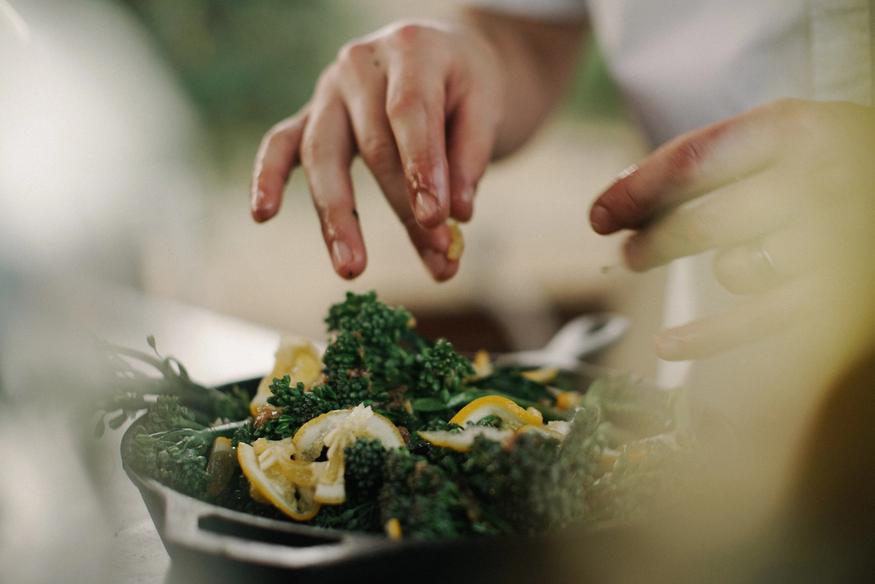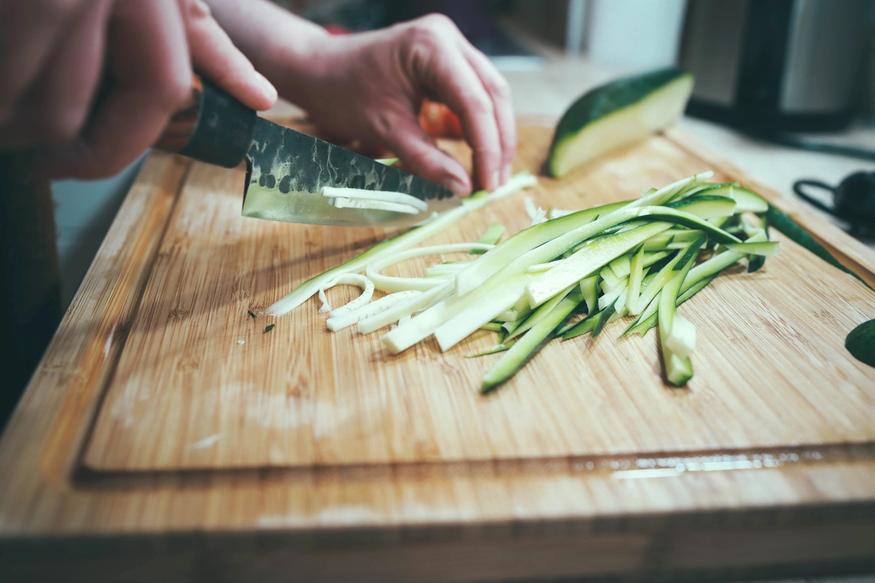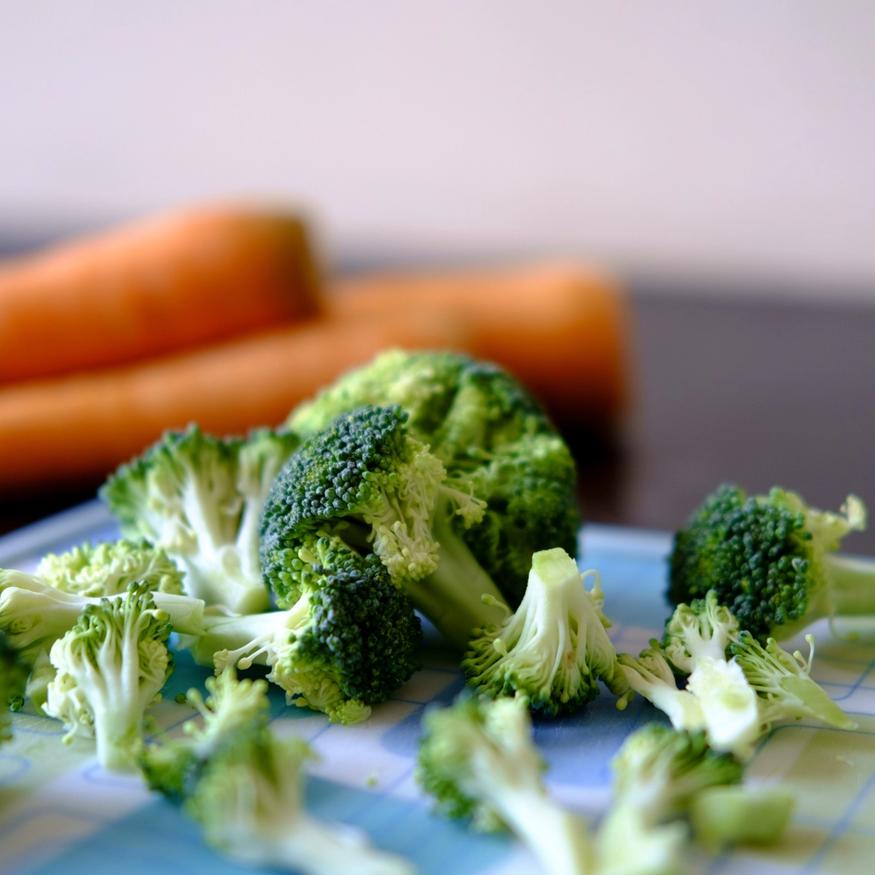5 Ways to Make Your Dinner More Environmentally Friendly
Published on 3/26/2020A lot of us grow more and more conscious of the lifestyles we lead, and more specifically, the effect of such lifestyles on the environment. It can be confronting, to realise the mistakes you’ve been making and damage you’re instilling on the planet. But that’s okay, as you didn’t know. The difference is what you do now, once you’ve been made aware of the effect it’s time to make a change.
We’re human. And so we want to hold onto the things we enjoy, and the things that make us happy. We mistakenly think that you can only be sustainable or environmentally friendly by giving up everything good and following a strict regimen. This leads people to fail without even trying. But it is all about baby steps, it is knowing you will never be perfect at it, and you don’t have to be. Because to halt climate change and make a difference, we just need everyone to make small adjustments.

So here are 5 ways to make your dinner more environmentally friendly, 5 small changes to help fight global warming from your dinner plate!
1. Start with the Shop
As the chicken began from the egg (or did it?), your environmentally friendly dinner must start at the beginning; the supermarket. Every decision you make here has consequences, and it can be really intimidating. Just remember the following tips to shop sustainably at the supermarket:
- Bags
This has come more to the public’s attention in recent times, and the useage of plastic bags is starting to diminish. I’ll admit that sometimes if I get groceries randomly on my way home, I’ll have to purchase a plastic bag. The difference is to then keep that bag, reuse it sometime, and to not throw it away as one-time use plastic. Store all your leftover plastic bags and your reusable shopping bags somewhere near the door, so that you won’t miss them on your way out.
But this also applies to within the supermarket. A trend that has been going on as long as I can remember is to put each fruit or vegetable in a separate plastic bag before putting it in your shopping bag. This is so unnecessary! Bananas can go straight into your basket, you’re not eating the peel anyways! Courgettes and eggplants, tomatoes and apples, they all don’t need a plastic bag to seperate them. Just wash everything carefully at home and place it on top of your other groceries. This will save you hundreds of useless little baggies annually.
And it can be difficult, but try to avoid purchasing pre-packaged fruit and vegetables. This includes sliced ones - takes a few minutes at home anyways!
- Organic
I remember being little and organic being this fancy, odd concept. People mocked it mainly, and didn’t see the purpose - didn’t taste as good as McDonalds burger anyways! We’re slowly starting to understand all the crap that is going into our food, but still purchasing products that have been doused in chemicals and genetically enhanced. I am guilty of it too, I won’t deny it. But just try, once in a while, to buy organic. Maybe when it’s discounted, or when it looks far more appeasing. Allow yourself to spend on organic, and your body will thank you for it.
- Local
Shopping locally helps the environment and the community. It reduces the amount of carbon emissions from transporting the ingredients and produce, and ensures your money stays local. I understand that we’ve evolved to a society with little time to spare, certainly not for visiting seperate stores for separate groceries. And it’s okay to do a lot of your shopping at your chain supermarket, but try to at least once a week shop locally, at a small privately owned store.
I personally try to do this by stocking up on fruit and veg from dedicated shops on a weekend day. It ensures I’ve got plenty of fresh delicious food in the house, and means I’m spending less at the major supermarket during the week. It reassures me to know I spent some money at someone’s store, money which goes to them and their family, rather than to a huge chain that wouldn’t notice the difference. This could also be through going to a bakery once a week, to buy delicious bread - which you could also freeze for convenience! You could visit a wine store to purchase delicious drinks to accompany your meal. The options are endless, and just once a week means four times a month, and 36 times a year. 36 purchases at a small store can truly help them, and help the environment.
- In Season
In all honesty, this is something I’m extremely guilty of not doing. I grew up in the Middle East and so we didn’t really have seasons, especially for food. About a year ago, I was food shopping with my boyfriend when I asked him to grab some strawberries. And he told me it wasn’t the season. I didn’t really understand at first, as I could see them, so what was the issue? He said they wouldn’t taste as good, and I later discovered the environmental impact it also has. It ensures the produce tastes better and has more nutrients, and also supports farmers in your local region. This further avoids carbon emissions related to transport.
With all such things, we feel like we don’t make a difference - so why bother? But we do. Supermarkets respond to what is being purchased, demand initiates supply. If people stop buying a cucumber wrapped in plastic, if people complain about it, they will eventually listen. If their organic products are selling in higher numbers, they will purchase more of them, and fund those farms better. We have power, don’t tell yourself that you don’t.

2. Watch your Water and Energy Usage
I always thought I was energy conscious, I always turned the light off when I left a room and I avoided turning on the heater until it was really necessary. But there are plenty of other ways you’re unnecessarily using energy and water while cooking, and here are a few:
- Leaving the tap on while you’re washing your hands. Or even while you’re washing dishes! Fill the sink if you have a large amount of dishes and then only rinse them gently. Or turn it on slightly and then wash before rinsing. I also like to move the soapy water to the next dish, instead of letting it run down the drain.
- Throwing away your cooking water immediately. I used to change the water between boiling veggies and cooking pasta, and it turns out this really isn’t necessary! There are a few exceptions, but usually you can use the water again. And often, you can use this leftover cooking water on your plants to give them a nutrient boost.
- Leaving the lights on in your kitchen while you’re eating in another room. A small thing, but over time it can really make a difference. I also love turning off the lights to almost signify the end of the cooking period.
- Unplug appliances that aren’t in use!
- Don’t keep opening the oven. I am so guilty of this, I love checking how far something is. But every time you do this, you release a lot of heat, and so a lot of energy is used to bring it back up. Plus, it isn’t beneficial for the dish inside!
3. Make your Meal Plant-Based
Hear me out. I am not saying you need to go vegetarian or vegan. I’m just saying that a plant based meal is far more environmentally friendly than one with meat. So even making two out of seven dinners a week plant based is already making a huge difference. Or dedicate one day a week to plant based eating. A day without bacon? We can all manage that, and if not you can check out vegetarian bacon ideas. You don’t have to commit to the lifestyle, you don’t have to never eat meat again. Just eat it a few times less in the week, make it more of a treat rather than a staple of the dinner table.
Consider other ways vegetarianism can help.

4. Recycling
Recycling is your best friend when it comes to practicing sustainability. I bought a bin with three compartments, and it has made it so much easier. You don’t have to walk anywhere, you don’t have to think. Trash in one, paper in two and plastic in three. And then I finally got a compost bin, which is on the balcony next to my kitchen. And I adore it! I never realised how much of my food waste was vegetable and fruit peels, also due to my vegetarianism I suppose. It fills so nicely, and it’s a comforting thought that all of this will be used again. Can’t have a compost bin? Your food scraps can still be used productively, such as to make veggie stock.
It was shocking to see how much longer it took to fill a trash bag! I used to have 2-3 per week, and now I barely fill 1! I try to keep up with emptying the recycling, and take some with me whenever I walk to the supermarket.
5. Leftovers
The more, the better; that should be your motto when cooking. Because anyway that you slice it, cooking uses a lot of energy - both yours and your kitchen’s. By cooking in bulk, you only have to microwave something later, which uses less energy than your oven or cooking. It will also save you a lot of time, and help you to make smart food decisions when hunger strikes. Plus, if you ever don’t feel like cooking you won’t turn to ordering in, which is often using non-sustainable produce and meat heavy. Instead, you’ll pull a delicious tupperware of lasagna out of the freezer.
Saving money, saving time, and saving the world!
But on the topic of that tupperware… we need to have a discussion about that! Stop using cling film and plastic sandwich bags for your leftovers. Instead buy a bunch of sturdy tupperwares and use them over and over again. You can also buy beeswax to wrap food in, which is a reusable alternative to plastic. I also have some of these food covers, which I use over tins or cut fruit usually. If I ever use tinfoil, I try to reuse it. Most of the time your tinfoil doesn’t even touch the food, just rests above it. So when that food is all gobbled up, fold it gently and put it away for next time.
Small changes go a long way, and your meal will taste even more delicious with the knowledge that today you made a difference. Every day you can make a difference, without negatively impacting your life. Are you really that attached to single use plastic or lights on in a different room? Make sustainability work for you, starting with these environmentally friendly dinner tips. Anything that I missed?
Featured posts

Fleur
Welcome to Symptoms of Living! A place where I like to relieve myself of the barrage of thoughts and ideas filling my mind. Here I'll take a look at various topics, from books to BPD, series to self-harm, there's nothing that we can't, and shouldn't, talk about.
Having struggled with mental illness since the age of 15, one of the hardest parts was how alone I felt in it. While mental illness is beginning to be discussed more openly, and featured in the media, I still think there is room for improvement. So whether it is mental illness or merely mental health, a bad day or a bad year, let's make this a place to approach it and strip it back. Everyone has their own symptoms of living, and you certainly won't be the only one with it.
Would you like to receive my top monthly articles right to your inbox?
For any comments/questions/enquiries, please get in touch at:
info@byfleurine.com
I'd love to hear from you!